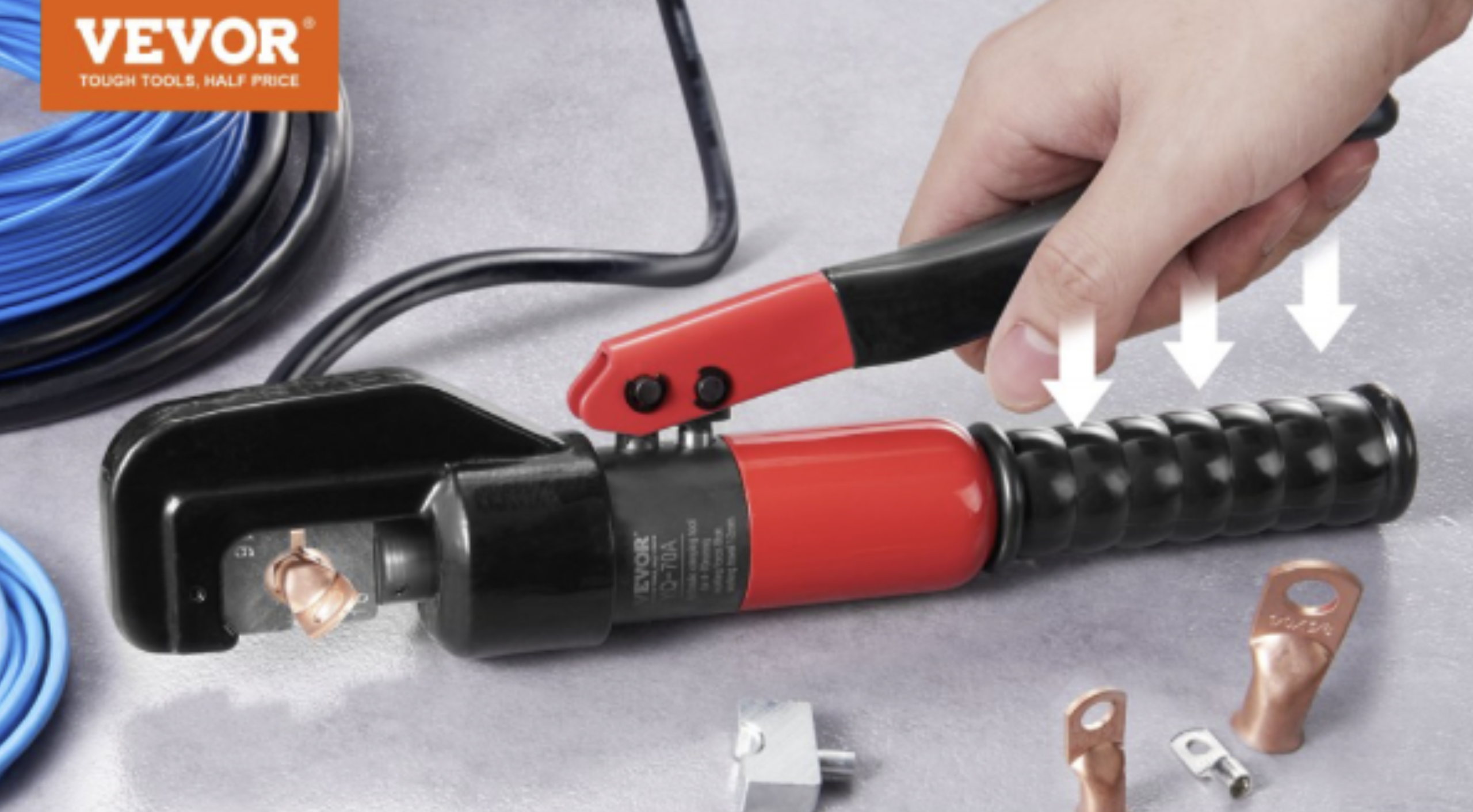Maintaining a clean home goes beyond surface-level cleaning and organizing—it also involves keeping your plumbing system in optimal working condition. Plumbing issues such as leaks, clogged drains, or faulty fixtures can disrupt your daily routine and compromise the cleanliness and safety of your home. Regular plumbing maintenance helps to prevent these problems, ensuring that your home remains clean, functional, and welcoming to everyone.
In this article, we’ll explore why routine plumbing maintenance is essential for a clean home. We’ll discuss various aspects of plumbing maintenance and provide practical tips to keep your plumbing system running efficiently. Additionally, we’ll share some best practices for using the VEVOR propress tool, a device that can simplify and speed up your plumbing maintenance tasks.
Importance of Regular Plumbing Maintenance
Regular plumbing maintenance plays a critical role in keeping your home clean and in good condition. Below are key reasons why maintaining your plumbing system is essential:
1. Prevents Costly Repairs
Frequent plumbing inspections help catch and fix minor issues before they escalate into expensive problems. Small leaks or blockages, when left unattended, can lead to significant damage, requiring costly repairs or even major renovations. For instance, a hidden leak could damage your home's structure, leading to issues such as rotting wood or mold. By scheduling routine checks and addressing minor plumbing issues promptly, you can avoid costly emergency repairs and keep your home in good shape.
2. Maintains Water Quality
The quality of your water supply is largely dependent on the condition of your plumbing system. Over time, pipes can accumulate sediment, rust, or other contaminants, which can affect the taste and safety of your water. Regular maintenance, such as flushing your water heater and cleaning the pipes, helps to keep your water clean and free from harmful pollutants. By ensuring the purity of your water supply, you are also promoting a healthy and safe home environment.
3. Enhances Appliance Efficiency
Plumbing-related appliances, including water heaters, washing machines, and dishwashers, rely on well-maintained plumbing systems to function properly. When sediment builds up, or when water pressure is too low, these appliances may operate less efficiently, consuming more energy and reducing their lifespan. Regular plumbing maintenance ensures that your appliances run at peak efficiency, reducing energy costs and prolonging their life.
4. Reduces the Risk of Water Damage
Neglected plumbing systems are often the cause of water damage, one of the most common and destructive issues homeowners face. Leaky pipes, faulty fixtures, and clogged drains can lead to serious problems such as flooding, mold growth, and even structural damage. Regular plumbing inspections can identify potential problem areas and allow you to address them before they cause significant damage. This proactive approach helps to preserve the structural integrity of your home and saves you from costly repairs down the line.
5. Access Panels in Plumbing Maintenance
Access panels are essential for simplifying plumbing maintenance by providing easy access to hidden pipes, valves, and other critical components without the need for major demolition. These panels, often found in walls, ceilings, or floors, allow for quick inspections and repairs, helping to address issues like leaks or blockages before they escalate. Installing access panels in key areas, such as behind bathroom fixtures or near shut-off valves, ensures minimal disruption when servicing your plumbing system. This not only saves time and money but also preserves the aesthetic integrity of your home by preventing unnecessary damage to walls or surfaces during maintenance.
6. Improves Indoor Air Quality
Plumbing issues, particularly leaks, can lead to moisture buildup, which creates an ideal environment for mould and mildew to grow. Mould spores can negatively affect indoor air quality and lead to respiratory issues, allergies, and other health problems. By maintaining your plumbing system, you can prevent excess moisture from accumulating in your home, keeping it dry and mould-free. This, in turn, improves indoor air quality and promotes a healthier living space.

Maintenance Tips for Using the VEVOR Propress Tool
The VEVOR Propress tool is a valuable resource that can make plumbing maintenance more efficient. However, to get the most out of this tool, it’s essential to follow some best practices:
1. Familiarize Yourself with the Tool
Before using the VEVOR Propress tool, take time to thoroughly read the user manual. Understanding the tool’s features, components, and safety guidelines will ensure that you use it correctly and effectively. This step is crucial, especially for first-time users, to avoid mishaps and to operate the tool with confidence.
2. Calibrate for Accuracy
To ensure precision during your plumbing tasks, make sure the VEVOR Propress tool is correctly calibrated before each use. An improperly calibrated tool can result in faulty connections or damage to your plumbing system. Regular calibration checks will help you maintain accuracy and prevent issues that could arise from misaligned parts.
3. Clean the Tool Regularly
After each use, be sure to clean the tool’s jaws and other critical components to remove any buildup of debris or grime. Regular cleaning helps maintain the tool's effectiveness and ensures secure attachments with pipes and fittings. This also prolongs the life of the tool, saving you time and money in the long run.
4. Use Only Approved Fittings
For the best results, always use fittings that are approved by VEVOR when working with the Propress tool. Using non-approved or incompatible fittings can lead to leaks or other connection issues. Stick to manufacturer-recommended products to avoid these problems and ensure a reliable and secure fit.
5. Inspect for Wear and Tear
Like any tool, the VEVOR Propress pipe wrench is subject to wear and tear over time. Regularly inspect the tool for any signs of damage or deterioration, such as worn-out jaws or loose parts. If you notice any damaged components, replace them immediately to prevent issues during future use and to maintain the tool’s reliability.
Conclusion
Regular plumbing maintenance is key to a clean, safe, and functional home. By taking a proactive approach to your plumbing system’s upkeep, you can prevent costly repairs, improve water quality, and enhance the efficiency of your plumbing-related appliances. Using reliable tools can further streamline your maintenance tasks, making them easier and more efficient. Investing time in routine plumbing checks and proper tool maintenance is not only an investment in the longevity of your home but also in the health and comfort of your family.

